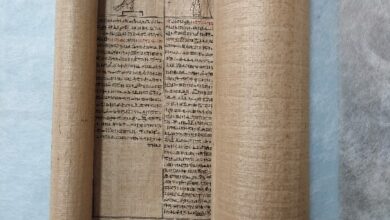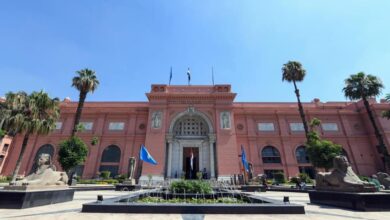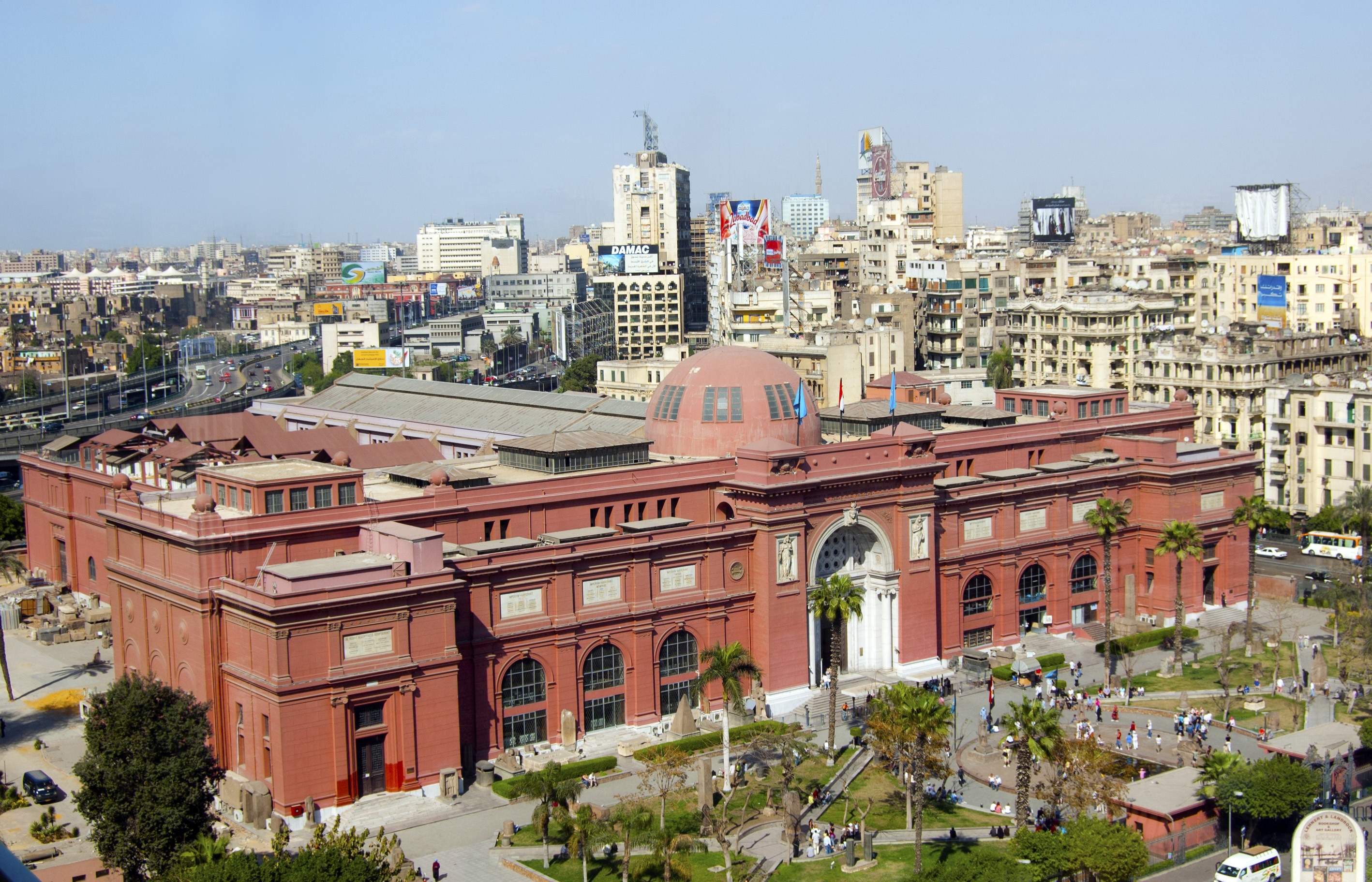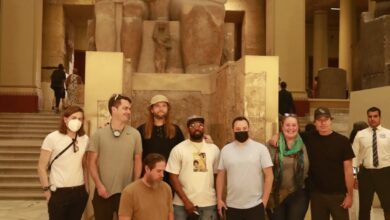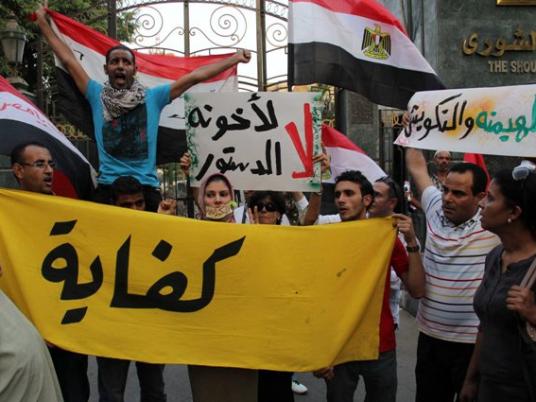
“Shave your beard and show us your face, so we can see your true disgrace: you look just like Mubarak!”
It didn’t take long on Tuesday for protesters to fill Tahrir Square, or the air above it with similar chants aimed at Mohamed Morsy. When the president issued a series of decrees Thursday drastically expanding his powers while robbing the judiciary of its own, the consequences were immediate: a weekend of renewed violence, a nosedive in the stock market, and the widespread branding of the nation’s first elected leader as a tyrant. As a further result, numerous opposition groups arranged for a collision of marches in Tahrir on Tuesday, which arrived amidst a steady flow of independently aggravated citizens.
“Freedom. It’s as simple as that. We want freedom,” Omar Khaled Hussein tells Egypt Independent shortly after arriving in the square with several friends. The 20-year-old claims to have been “astonished” by what he interpreted as a blatant power grab by the president. “We had our revolution. It’s like Morsy doesn’t understand that, or he doesn’t know what the word means. It’s like he thinks we just elected him to replace Mubarak.”
“Morsy was in jail during the start of the revolution; he must have missed what it was all about,” his friend quips. “So we should tell him.” He launches into the familiar chant of “bread, freedom, social justice,” before being cut off by his friends’ laughter. It continues behind him, though, floating out from clusters of protesters and, occasionally, the square’s single stage, along with more recent compositions condemning the Muslim Brotherhood, and rejecting its supreme guide. In between, the various young men on stage thank each opposition group as it arrives, to much applause, and ask that the group members lower the flags which they carry to represent them.
“Today, we’re here as Egyptians and nothing else,” they announce, mostly to be met with immediate compliance and a few rounds of appreciative applause, as members of various syndicates and labor groups blend into the crowd. “Today,” several speakers declare on several occasions, “we are all brothers and sisters, children of one nation!”
It’s a notion repeated by Khaled Youssef between turns rallying a crowd of journalists toward the square. Youssef, deputy editor-in-chief of the now-defunct Al-Shaab newspaper, says, “We Egyptians are all one in the same; our only problem is that we’re misinformed, so it’s easy for misunderstandings to thrive, and for ignorance to be manipulated by those with an interest in doing so.
“To deny Egypt its freedom of press is to deny its citizens the right to information,” he emphasizes. “This is why we cannot accept the president’s decrees, especially since journalism is the conscious of the nation.”
Behind him, a row of female journalists continue to chant about grinding the Muslim Brotherhood under their feet.
There are similar sentiments in Tahrir, and the procession of journalists arrives at 3 pm to be greeted by a group of young men passing out signs that read "EGYPT IS THE GRAVEYARD OF THE BROTHERHOOD…CATCH A BROTHER NOW!" Chants carry threats to the “illegitimate” organization, banners prohibit its members from entering the stage, and there is plenty of overheard talk of the “bastards” and “how to deal with them.” But there is little aggression to match it. Instead, the square is alive with beating drums, ear-piercing horns, and on at least two occasions shortly after sunset, fireworks.
“Of course I’m upset about recent events,” 18-year-old Mohamed Amin Idris insists, with a tabla in one hand and the colors of the flag streaked across both cheeks. “And that’s why we’re all here. But we’re all happy to be here because we took back the square. The Brotherhood tried to hijack it like they hijacked the revolution, but they need to understand Tahrir is Egypt, and it belongs to Egyptians.”
Mostafa Mahmoud Okasha agrees, having come all the way from Qena for what he knew would be an impressive turnout. The 23-year-old, who claims to have frequented the square in the early days of the revolution, recalls the despair at seeing “what had happened to it” in recent months. When asked how he would describe it now, Okasha replies, “healthy.”
“This is right, being able to agree,” he says. “Some of us voted for a president with ties to the Brotherhood, some of us didn’t. But we can all agree that nobody voted for a tyrant.”
Behind him, the onstage speaker announces, “there is a possibility that sexual offenders have been sent into this crowd to give us a bad name. Regardless of where they come from, anyone who harasses any girl in this square will be dealt with swiftly, and brutally, by all of us.” The statement is met with thunderous support.
As the crowd continues to swell to an almost immobile extent, disagreements of the sort that would have constituted a fistfight in previous weeks seem to instead mostly turn into experimental forms of group debate. Even the question of whether Morsy should step down, or just withdraw his decrees is discussed with cautious consideration. At one point, this reporter witnessed a middle-aged, pony-tailed man attempting to explain to a group of larger men in torn, traditional clothing the importance of the constitution.
“You can’t elect a president before you have a constitution; it’s not normal,” he explains. “Think of it like this: what comes first, the chicken or the egg?”
“You don’t know! Nobody knows!” one of the men, clearly offended, yells. “You can’t tell me you know who came first!”
“Alright, bad example,” the first man quickly recants. “Think of a train and its tracks, then.”
Even the random overheard snippets of hate-speak seem somehow softened by the jovial atmosphere. “Look,” a rotund, middle-aged woman points her husband’s attention to a street artist’s depiction of the president as a farm animal, and chuckles. “Look at that sheep-faced son of a bitch.”
It’s a running theme throughout the day’s protests, with many of the chants comparing Morsy and his supporters to mindless members of the supreme guide’s herd, and much of the street art and homemade signs mocking the opposition’s need for a leader to idolize. That, however, doesn't stop large segments of the Tahrir crowd from flocking later in the evening to the square’s stage at the first announcement of Hamdeen Sabbahi’s arrival, and cheering in wild support of the former presidential candidate, who had yet to physically appear.
Sabbahi says nothing new — he could have said nothing at all — but he manages to effectively stir the crowd by reiterating what they had been chanting all day: “This revolution started in Tahrir Square, and it will end in Tahrir Square! I swear on the blood of the martyrs, we will unite Egypt! Bread! Freedom … ”
Every slogan he screams is met with a healthy roar.
Across the square, Abdel Kader Ahmed holds up his sign — a poster of Anwar Sadat above the caption, "The Great Peacemaker" — for all to see. When asked about Sadat, however, he promptly begins to list the similarities between Morsy and a more recent former president. “How is [Morsy] different than what we overthrew? And the people who say ‘give him a chance’ — how can I when the man is so clearly insisting on going in the wrong direction?”
He then cracks some jokes at the current president’s expense, and our own, smirking.
“It used to be soccer distracted us from lousy presidents. Now lousy presidents are distracting us from soccer.” He stares up at Anwar Sadat. “Rest in peace,” he shouts.

